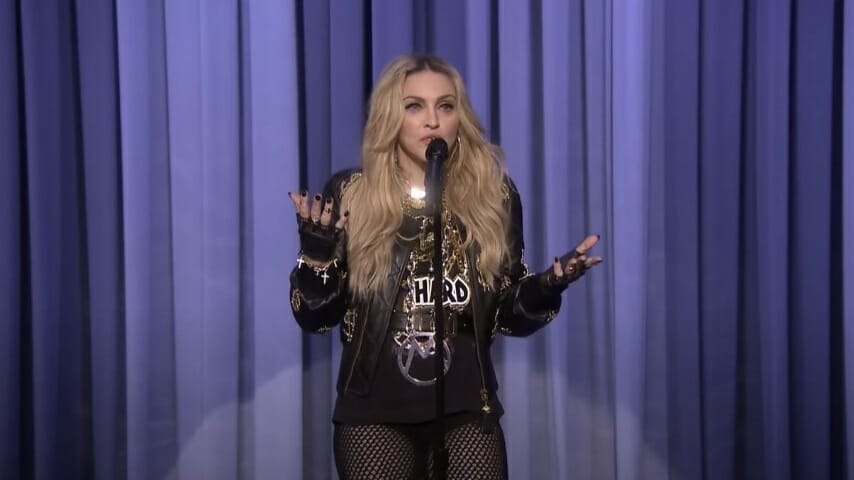Just Because You’re Famous Doesn’t Mean You’re Funny: Stand-up Comedy’s Transfer Student Problem
Screen cap from YouTube
Earlier this summer, Netflix’s designated comedy twitter account asked its followers, “Which celebrity would you want to see randomly try stand-up comedy?” What a fun, flirty way to suggest anybody can just decide to be a comedian. Who needs to do their 10,000 hours when you have 1 million people following the Twitter account that you co-write with your publicist! After all, anybody can just be president, apparently.
What separates Netflix’s tweet from your other run-of-the-mill quote-tweet games is that this kind of thing actually happens, and sadly, pretty often, too. People with even a moderate amount of clout and experience in another entertainment field, whether it be working as a professional athlete, actor, red carpet reporter, radio DJ, meme aggregator, or pop singer, can just stroll onto the most vaunted stages and be handed a mic. In 2015, Madonna did stand-up as a gimmick on The Tonight Show in a year where only 19 stand-up performances were booked over the course of 205 episodes (only three of which were performed by women). NBA player Blake Griffin has performed on more Just For Laughs shows than comedians with critically acclaimed albums (not to mention his time “interning” for internet comedy content machine Funny Or Die during the 2011 NBA lockout). It’s a bit of a problem.
There’s no official term for it, but these people are essentially comedy’s version of a college transfer student. They change schools expecting all of their prior credits to seamlessly transfer over with no prerequisites to fulfill before diving straight into senior-level courses. I can tell you from experience, that’s not happening. And let me be clear, this is not the equivalent of moving across town to finish your English major at Duke instead of UNC. You’re switching from English to physics and expecting an even exchange rate (although Harvard or Yale would make a more accurate analogy for reasons that’ll never not be bonkers to me).
I’m not one to harp on the idea of “paying your dues.” Your success is not invalid because you didn’t have to put up with as much unnecessary bullshit as those who came up during the ‘80s comedy boom. There’s no time table or set route you must take in order to get a comedy special or headline a major festival. Some people don’t break through until after 10 years in, while for some it takes as little as just a few years. But the difference is actually doing the work. That means doing open mics, bar shows, guest sets, feature sets, and gradually growing your talent on stage and filling up your calendar on the merits of your work and not via a reputation achieved through any medium other than stand-up (I mean, yes, nothing is truly a meritocracy but you get it).
Having a guest role on Modern Family is not a substitute for years of writing and performing stand-up. Even years of improv training does not for a good stand-up comedian make—it’s just a completely different game. LeBon James is the very definition of an athlete and an ungodly good basketball player, but that doesn’t mean he could play soccer for his beloved Liverpool (too tall). There’s a reason Deion Sanders and Bo Jackson are the only major multisport athletes of note from the last 40 years out of thousands (millions?) of other pros. These skills just don’t automatically transfer over, or at least they cannot be performed on the same level as their first trade which they only reached after years and years of dedication and training. It’s like prepping an actor for a movie about dance. You can give them lessons in the weeks leading up to production, but you’re still going to have to hire a professional ballerina for some shots.
But why does this happen? In what other profession could you do this? Nobody holds competitions to see what comedian can be the best accountant for one night, and yet I’ve sat on a panel judging a bunch of accountants’ first stab at writing jokes. Personally, I’d rather watch a comedian who’s been doing this for 20 years over a reality star who’s been at it for 20 seconds, so why do gatekeepers treat their stand-up institutions like some “take your ‘90s child star to work” day?
-

-

-

-

-

-

-

-

-

-

-

-

-

-

-

-

-

-

-

-

-

-

-

-

-

-

-

-

-

-

-

-

-

-

-

-

-

-

-

-








































